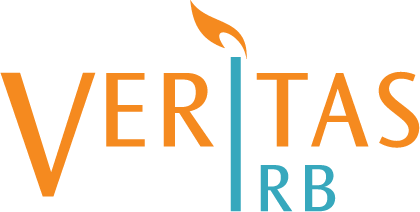Delegated IRB review is an exception to the general requirement of a review by a full panel of the IRB. Some research applications may be delegated to a single member of the IRB or a subgroup of the IRB when specific expertise is required.
The IRB delegated review process is also referred to as the expedited review process. Compared to the full board review process, it is indeed faster. Veritas IRB’s turnaround time for research applications qualifying for delegated review is three business days compared to seven business days for studies requiring full board review. But, it is important to ensure that the conditions for this exceptional review procedure are met prior to its use.
When is delegated IRB review appropriate and permissible?
While the policies and guidelines governing research with humans provide a list of research categories that may qualify for delegated review, the determination remains a subjective process. Essentially, delegated IRB review is appropriate and permissible when the research application is not expected to involve more than minimal risk.
Tri-Council Policy Statement – Article 6.12
“In keeping with a proportionate approach to research ethics review, the selection of the level of REB review shall be determined by the level of foreseeable risks to participants: the lower the level of risk, the lower the level of scrutiny (delegated review); the higher the level of risk, the higher the level of scrutiny (full board review).”
A research application can be regarded as within the range of minimal risk when the probability and magnitude of possible harms implied by participation in the research are no greater than those encountered in the research participant’s everyday life.
When determining if research is not expected to involve more than minimal risk, it is important to consider the following:
1. Types of possible harms:
Physical harm: Harm resulting from intervention to an individual’s body such as a contact, the administration of any substance, or the requirement to accomplish specific movements or exercises.
Psychological harm: Harm resulting from the expression of negative feelings by an individual such as anxiety, stress, anger, fear, embarrassment, sadness, hatred.
Social harm: Harm resulting from an individual’s loss of status such as employment, income, or reputation, or a breach of an individual’s rights such as privacy or confidentiality.
2. Attribution of harms to the proposed research:
Harms attributed to the proposed research must be clearly distinguished from the possible harms to which an individual would normally be exposed. Research-attributable risks should never be compounded with other risks individuals are exposed to in their daily life.
Here are some examples of circumstances where individuals are exposed to serious possible harm independent from the research:
– Cancer patients receiving high doses of chemotherapy
– Firefighters exposed to dangerous environments
– Individuals living in impoverished socio-economic conditions
– Families living in regions affected by conflict.
3. Individuals impacted by the possible harms:
The possible harms attributed to the proposed research can be influenced by the prospective research participant’s specific circumstances. Many factors may place an individual in a situation of vulnerability, such as:
– Capacity to consent;
– Health condition;
– Authority relationships (e.g. children, patients, employees, subordinates, students, prisoners);
– Availability of alternatives to research;
– Socio-economic status; and
– Dependency relationships (e.g. care, addiction, maternal-fetal).
When specific circumstances place prospective research participants at a higher degree of vulnerability than in their everyday life, the proposed research application may involve more than minimal risk. Therefore, the conditions for delegated IRB review are not met.
When considering the possible harms of a proposed research application it is important to consider their impact, not only to research participants but also to their relatives, families, communities, and groups. Some research may have the potential to stigmatize individuals, communities, or groups and lead to further psychological or social harm such as:
– Discrimination;
– Unfair treatment;
– Misappropriation of traditional knowledge;
– Devaluation of community values; and
– Violation of community norms and beliefs.
3 questions to assess if IRB delegated review is appropriate
In essence, the research application may qualify for an IRB delegated review exception if the answer to the following three questions is “NO”:
1) Do the research-attributed risks expose research participants to greater than minimal risks?
2) Are there specific circumstances that place the targeted research population in a situation of vulnerability with a potential for greater than minimal risk?
3) Could the research-attributed risks also affect the research participant’s relatives, family, group, or community?
Who makes the determination for IRB delegated review?
While policies, guidance, and standard operating procedures can guide the decision-making process, determination for delegated review of a research application must be made by the IRB through one of its Chairs or appointed Delegated Reviewers. The delegated review process may not be requested or imposed by research applicants or members of the Veritas IRB administration.
The IRB Chair or Delegated Reviewer is required to justify in writing the motives that support a determination for IRB delegated review for a proposed research application. Since the IRB delegated review process is an exception to the general requirement of full board review, a research application may be submitted to full board review at the sole discretion of the IRB Chair or Delegated Reviewer even if it meets in appearance the criteria for IRB delegated review.
Which types of applications are prospects for the IRB delegated review process?
Basically, any type of research application may be reviewed using the IRB delegated review process if it is appropriate and permissible. Examples include:
New research applications expected to involve no more than minimal risk;
Changes to research that involve no more than minimal risk;
Unanticipated events that represent no more than minimal risk to research participants;
Continuing review of studies initially reviewed through IRB delegated review; or
Continuing review of greater than minimal risk research when the research no longer involves greater than minimal risk interventions.
How is the IRB delegated review process conducted?
The IRB delegated review is a simplified process whereby a research application is generally reviewed by a single member of the IRB, but it is subjected to the same rigor as an IRB full board review.
The IRB delegated review process includes the verification of the same documents as for an IRB full board review. Veritas IRB standard operating procedures applicable to the initial review, ongoing review, or continuing review of research apply equally to IRB delegated reviews and those conducted by a convened meeting of the IRB.
The review process at Veritas IRB consists of four (4) steps:
Step 1 – Screening:
Research applications are verified to ensure they are complete and ready to be submitted to the IRB. The IRB Project Manager will also conduct a preliminary assessment to determine if the research application meets the objective criteria for delegated review listed in Veritas IRB’s standard operating procedures. Research applications that pass the screening step are transferred to one of the IRB Panel Chairs or Delegated Reviewers, indicating under which objective criterion for delegated review the application is submitted.
Step 2 – Review:
The IRB Panel Chair or Delegated Reviewer will assess the research application to confirm that the IRB delegated review process is appropriate and permissible, providing a written rationale for acceptance. If for any reason, the delegated reviewer does not consider it appropriate and permissible, the application will be returned to the IRB Project Manager for transfer to the next convened meeting of the IRB for full board review.
Once the IRB delegated review process is confirmed, the delegated reviewer will proceed with the review, assigning a review status to the documentation submitted as part of the research application (I.e. acknowledged, approved, conditionally approved, deferred, disapproved).
The IRB delegated reviewer may exercise all authorities of the IRB existing under the full board review process with the exception of disapproving research. A submitted research proposal may be disapproved only after review through full board review.
Step 3 – Quality Control:
Before the IRB Project Manager can provide feedback to the applicant, Veritas IRB’s Research Ethics Manager must conduct quality control of the review and its documentation to ensure completeness and legibility of the IRB Communication, including the detailed rationale justifying the IRB delegated review. If said rationale is missing or if the research application does not meet any of the objective criteria allowing for IRB delegated review, the review will be returned to the IRB delegated reviewer for clarification. Under exceptional circumstances, if the Research Ethics Manager is of the opinion that the objective criteria under the normative documents permitting the IRB delegated review process are not met, the research application could be transferred to the next convened meeting of the IRB for full board review.
Step 4 – Feedback:
Once quality control has been completed, the official IRB Communication will be released and made available on www.irbconcierge.com and an email will be sent to the research applicant. Veritas IRB’s Project Manager will then contact the applicant to present the review and answer any questions the applicant may have.
Key Takeaways
The IRB delegated review process is commonly used by Veritas IRB and is part of its mandate to adopt a proportionate approach to ethics review so that its level of scrutiny is to the level of risk presented by the research throughout its lifecycle. Through this approach, research applications that present a lower level of risk will be reviewed through delegated review while research applications presenting a higher level of risk will be reviewed through full board review. While it is commonly used, it is important to remember the following:
1) It’s exceptional: The delegated review process remains an exception to the general requirement of a full IRB review;
2) It can’t be imposed: The determination for a delegated review process remains the sole prerogative of the IRB;
3) It’s rigorous: Whether a research application is reviewed through a delegated review process or undergoes a full panel review, the requirements for approval are the same.


